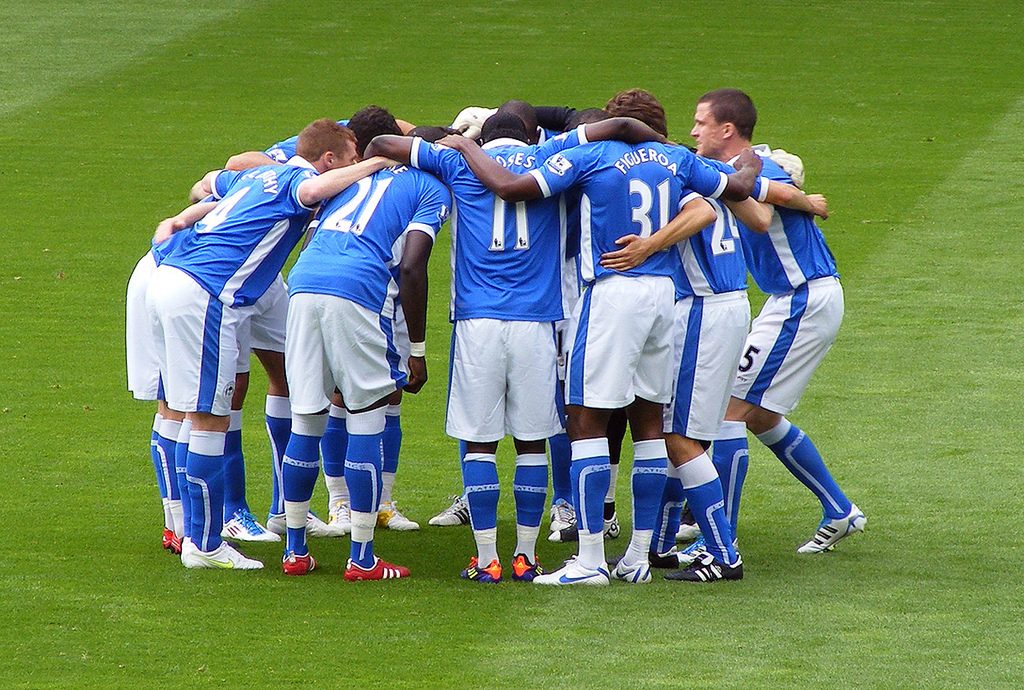Our culture tells us: it’s all about self-satisfaction, self-realization and self-fulfillment. You’ve probably seen the Korean Airline commercial in which Nathalie Dorra sings: ♪ “It’s all about you…†♬
Now contrast this to what corporations want to achieve: effective teams that are cohesive, productive and efficient. Can we, as individuals, really be good team players?
I always thought that I was a good team player but I never really knew how to measure this. What’s the profile of a good team player? How would colleagues describe him or her? Is there an “ideal†team player?
I think my summer reading has brought me a step closer to understanding the make-up of an ideal team player.
I just finished reading Patrick Lencioni’s latest leadership fable called The Ideal Team Player. If you are interested in this topic and want something to take to the beach, I can highly recommend it. The story is a fun read; the teaching pretty eye opening and powerful.
Based on his many years of corporate and consulting experience, Lencioni has boiled it down to three leadership traits, or, as he calls them, virtues. Here they are with definitions from his website (www.tablegroup.com):
- Humble: Ideal team players are humble. They lack excessive ego or concerns about status. Humble people are quick to point out the contributions of others and slow to seek attention for their own. They share credit, emphasize team over self and define success collectively rather than individually.
- Hungry: 
Ideal team players are hungry. They are always looking for more. More things to do. More to learn. More responsibility to take on. Hungry people almost never have to be pushed by a manager to work harder because they are self-motivated and diligent. They are constantly thinking about the next step and the next opportunity.
- (People) Smart: 
Ideal team players are smart. They have common sense about people. Smart people tend to know what is happening in a group situation and how to deal with others in the most effective way. They have good judgment and intuition around the subtleties of group dynamics and the impact of their words and actions.
The ideal team player is strong in all three of these behaviors and can be found where the three circles overlap:
People who have shortcomings in all three of these traits have little chance of being a valuable member of a team. It would be best for an organization to move them out.
If someone is firing on only one of three cylinders, the journey is going to be difficult but not impossible. They will need to be made aware of their shortcomings, acknowledge these and be willing to work on correcting them, thru feedback and coaching.
Lencioni describes the behaviors of these individuals and gives them the titles you see below (pg. 168):
Pawns are nice, unassuming people who don’t have much drive to accomplish things and lack the social smarts to build effective relationships with others on the team. Because they are nice and get along, pawns tend to get tolerated by teams for a good period of time.
Bulldozers have great drive and can push the team forward, but they tend to break a lot of china along the way because they don’t care much about other people’s feelings. They are also “me†focused and want to take advantage of the team for their own purposes.
Charmers like to put on a good show for the team but don’t contribute much. They like to tell people how good they are but don’t really care for the team’s success. Unfortunately, their entertaining style will keep them on the team even longer then the Pawn.
Next, Lencioni looks at team members who have strengths in 2 of the 3 key virtues. These people are more difficult to recognize because their strengths can obscure their weaknesses (pg. 169). These people can become strong team players if they address and correct the one bad behavior. If the negative characteristic is too strong to overcome, then they may never become an ideal team player:
Accidental Mess-Makers are the “elephants in the china shop†that mean well and don’t want any credit but lack the people skills to communicate effectively with other team members. Their words and actions can often lead to frustration with other team members. But, they do contribute and are respected by others because they have the work ethic to move the team forward.
Lovable Slackers have the humbleness and people skills to get on well with other team members but lack the drive to contribute to the team’s goals. They often have other interest outside the team that are more important to them. Their friendly disposition often makes it hard for leaders to confront them on their lack of drive.
Skillful Politicians are the most dangerous people to have on a team because they are good at manipulating people to achieve their own objectives. They are hard working but like to bask in the glory of what they have accomplished. Skillful Politicians need to be identified, called out and corrected… or moved off the team as quickly as possible.
Lencioni ends his book with a final thought (pg. 215):
“…I must admit that apart from the other two virtues, humility stands alone. It is, indeed, the greatest of all virtues and the antithesis of pride, which is the root of all sin, according to the Bible.â€
So, what kind of team player are you? Are you an Ideal Team Player, strong in all three virtues: Humble, Hungry and Smart? Be honest with yourself and get some honest feedback from friends and colleagues that you trust.
Source: Patrick Lencioni: The Ideal Team Player, Jossey-Bass, Hoboken, NJ 2016
